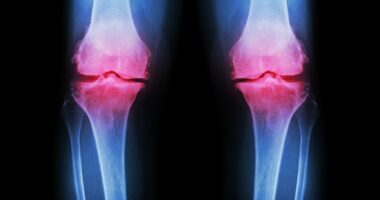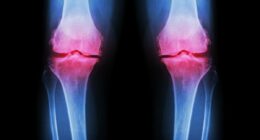Share this @internewscast.com
Doctors across the board concur that walking is good for your health. Often undervalued as a form of exercise, the NHS reinforces that even a brisk ten-minute power walk can shower you with benefits, ranging from boosting your heart’s wellbeing to potentially reducing dementia susceptibility.
But 0nce you’re kitted up and poised for action, opinions split on the ideal step quota. The standard benchmark for many is hitting the daily target of 10,000 steps; an impressive yet feasible goal for the committed walker. Based on the average person’s stride and speed, this equates to approximately five to eight kilometres, a trek that averages out to about one to two hours on foot.
But what’s the origin story behind this specific tally?
Interestingly, reports suggest that the 10,000-step target surged in popularity due to a promotional stunt tied to the 1964 Olympics for a pedometer called Manpo-kei, which translates to “10,000 step meter”. This is because the kanji for ten-thousand (万) resembles a person striding, reports SurreyLive.
How many steps should you walk per day?
The quest to pinpoint the ultimate step count has intrigued researchers, with studies yielding varying verdicts.
According to findings published in a recent 2022 study in JAMA Neurology, clocking up anything from 3,800 to 9,800 steps daily could be associated with a diminished risk of dementia. The research suggests that just shy of 10,000 steps, particularly when taken briskly at a pace of around 112 steps per minute, might be the “optimal dose” for lowering the chances of developing dementia.
Researchers have discovered that there’s no need to panic if you’re not hitting the 10,000 steps a day target.
A comprehensive review of 17 studies involving over 226,000 participants revealed that as few as 2,337 steps a day could reduce the risk of dying from heart and circulatory diseases, while 3,867 steps could decrease the risk of death from any cause.
Beyond this point, each additional 1,000 steps was associated with a 15% reduced risk of death. If you’re seeking a specific step count goal, research published in the European Journal of Preventative Cardiology in 2023 suggests aiming for between 7,000 and 13,000 steps if you’re under 60.
For those aged 60 and over, the most significant health improvements were observed when walking between 6,000 to 10,000 steps.
Walking more than 2,200 steps, roughly equivalent to a mile, was linked with reduced mortality and cardiovascular disease, according to a study published in the British Journal of Sports Medicine in 2024.
For women over 60, walking between 6,000 and 7,500 steps decreased the risk of death from any cause, as reported in a 2022 review in The Lancet. The benefits levelled off between 8,000 to 10,000 steps for individuals under 60.
Another factor — how fast you walk
However, it’s not just about the number of steps you take – the speed at which you walk also matters. A study published in BMJ Heart earlier this year found that maintaining a brisk pace could lower the risk of heart rhythm problems.
The researchers categorised a slow pace as under 3mph, an average pace as 3-4mph, and a brisk one as more than 4mph. Even when considering demographic and lifestyle factors, an average or brisk walking pace was associated with a 35 per cent or 43 per cent reduced risk of heart rhythm irregularities compared to a slow pace.
The study revealed that individuals who walk at a faster pace were linked to a lower risk of atrial fibrillation and other heart rhythm disorders.

















